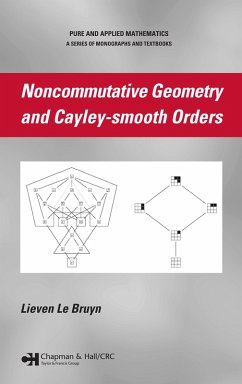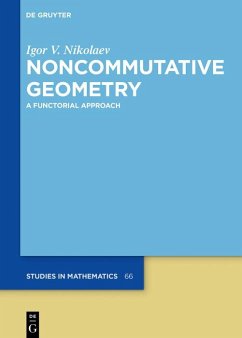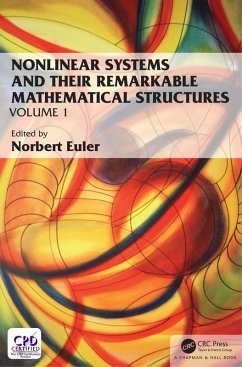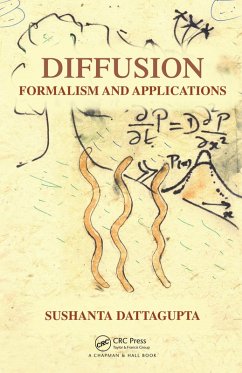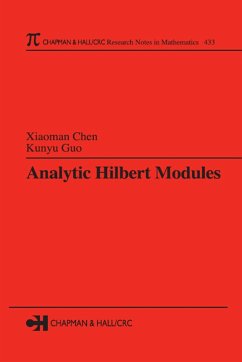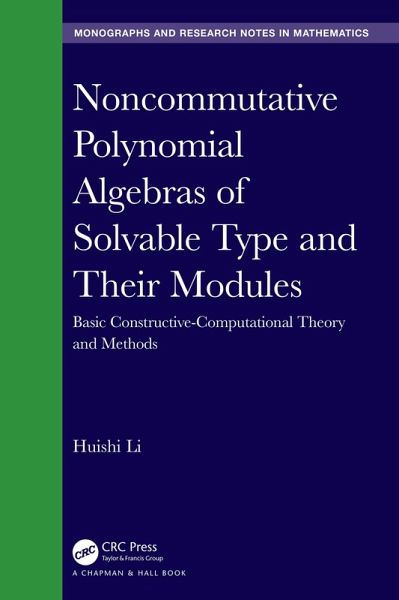
Noncommutative Polynomial Algebras of Solvable Type and Their Modules (eBook, ePUB)
Basic Constructive-Computational Theory and Methods
Versandkostenfrei!
Sofort per Download lieferbar
159,95 €
inkl. MwSt.
Weitere Ausgaben:

PAYBACK Punkte
80 °P sammeln!
Noncommutative Polynomial Algebras of Solvable Type and Their Modules is the ¿rst book to systematically introduce the basic constructive-computational theory and methods developed for investigating solvable polynomial algebras and their modules. In doing so, this book covers: A constructive introduction to solvable polynomial algebras and Gröbner basis theory for left ideals of solvable polynomial algebras and submodules of free modules The new ¿ltered-graded techniques combined with the determination of the existence of graded monomial orderings The elimination theory and methods (for lef...
Noncommutative Polynomial Algebras of Solvable Type and Their Modules is the ¿rst book to systematically introduce the basic constructive-computational theory and methods developed for investigating solvable polynomial algebras and their modules. In doing so, this book covers:
This book is perfectly suited to researchers and postgraduates researching noncommutative computational algebra and would also be an ideal resource for teaching an advanced lecture course.
- A constructive introduction to solvable polynomial algebras and Gröbner basis theory for left ideals of solvable polynomial algebras and submodules of free modules
- The new ¿ltered-graded techniques combined with the determination of the existence of graded monomial orderings
- The elimination theory and methods (for left ideals and submodules of free modules) combining the Gröbner basis techniques with the use of Gelfand-Kirillov dimension, and the construction of di¿erent kinds of elimination orderings
- The computational construction of ¿nite free resolutions (including computation of syzygies, construction of di¿erent kinds of ¿nite minimal free resolutions based on computation of di¿erent kinds of minimal generating sets), etc.
This book is perfectly suited to researchers and postgraduates researching noncommutative computational algebra and would also be an ideal resource for teaching an advanced lecture course.
Dieser Download kann aus rechtlichen Gründen nur mit Rechnungsadresse in A, B, BG, CY, CZ, D, DK, EW, E, FIN, F, GR, HR, H, IRL, I, LT, L, LR, M, NL, PL, P, R, S, SLO, SK ausgeliefert werden.






